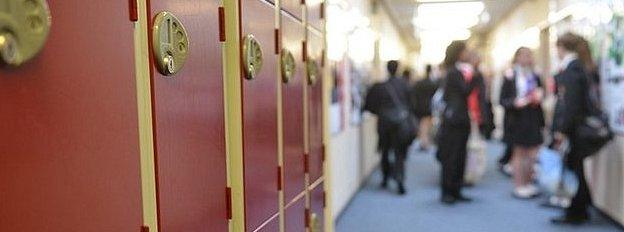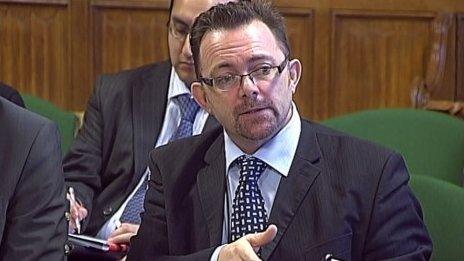Racism fear held back white working class pupils - Ofsted inspector
- Published

Teachers have not paid enough attention to poorly performing white children for fear of being seen as racist, an Ofsted inspector has suggested.
Chris Wood told MPs Ofsted was now urging schools to focus on white working class children, amid concerns they are getting a raw deal.
Lib Dem MP David Ward said most ethnic groups had representatives to speak up for their children's education needs.
But there were few pushing the cause of white working class children.
"Is there any evidence that anyone is actually speaking up for the white working class?," the Bradford East MP asked a panel of education experts.
"I get representatives from the Bangladeshi community complaining about 'our children in our schools' or the Pakistani community or the Kashmiri community. I find it difficult to think of a representative for the white working class who comes to me and says 'what about our children'... if they are, they are probably the BNP or would be accused of racism."
'Discomfort'
Mr Wood, who heads an Ofsted review into access and achievement, agreed with Mr Ward's assessment but said the emphasis had changed over the past two years.
He told MPs: "There is a much clearer focus on the performance of different groups of pupils who are eligible for free school meals, with white British being a clear focus group that we have identified through our reports, through this year's annual report.
"So it's finding its way into our inspection activity so schools are much more au fait with talking about those groups of pupils.
"I would argue in the past that was not the case and it could very well be because of a certain discomfort about talking about that group for the reasons you have suggested, around it being seen as an extreme view.
"But that is changing and we are certainly putting additional focus on that area."
Mr Wood was giving evidence to the Commons education committee, which is investigating how to improve the performance of white working class children in primary and secondary schools.

Chris Wood was giving evidence to the education committee
Some schools in disadvantaged had made great strides in boosting the performance of pupils from all backgrounds, particularly in the London boroughs, the committee was told.
But other schools, in similar areas, still had very low standards.
Kevan Collins, chief executive of the Education Endowment Foundation, said: "On average you see this low performance but we have these schools which are bucking the trend."
The way to boost performance was to make schools work more closely together and ensure the best teachers were given the most challenging pupils to teach, he suggested.
'Quality leadership'
The government's pupil premium scheme, which gives more money to schools for each child on free school meals, should also be more focused on aiding white working class children, he added.
"High quality" leadership was also important - but there were not enough incentives for the best heads and teachers to go and work in difficult schools, the MPs were told.
"Our best teaching is serving our more affluent children," said Mr Collins.
Getting parents involved with learning, particularly those who struggle with literacy and numeracy themselves, also helped, the committee heard.
But the parents most likely to be helped by such schemes did not attend them - and more effort had to be made to get out into the community.
There was also no evidence that making children get to school earlier or stay longer had any impact on standards, the committee was told.
Chris Wood said: "If it is more of the same and the same isn't very good in the first place I think that is likely to have a negative effect, rather than a positive effect."
- Published11 December 2013
- Published3 December 2013
- Published11 December 2013